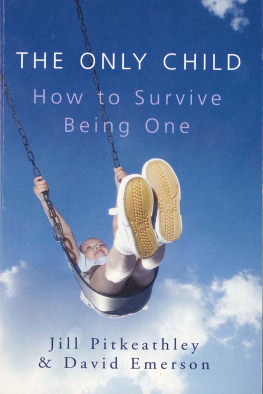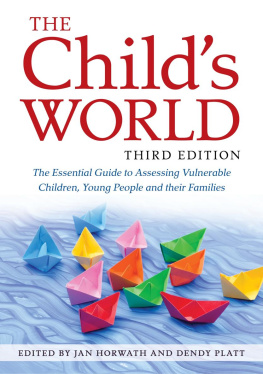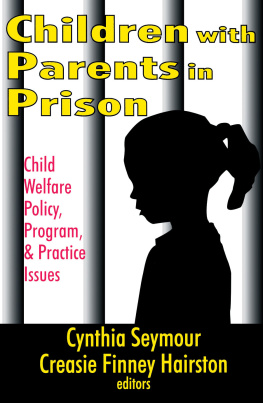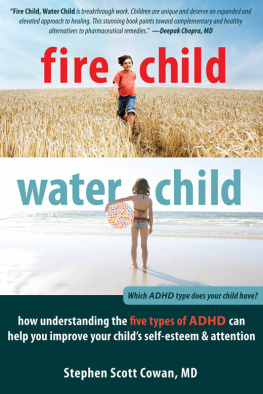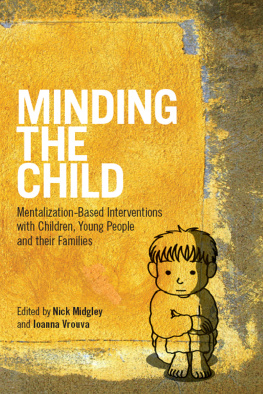Observing Children and Families
Beyond the Surface
First published in 2015 by Critical Publishing Ltd
All rights reserved. No part of this publication may be reproduced, stored in a retrieval system, or transmitted in any form or by any means, electronic, mechanical, photocopying, recording or otherwise, without prior permission in writing from the publisher.
Copyright 2015 Gill Butler, Pia Parry
British Library Cataloguing in Publication Data
A CIP record for this book is available from the British Library
ISBN: 978-1-910391-62-4
This book is also available in the following e-book formats:
MOBI ISBN: 978-1-910391-63-1
EPUB ISBN: 978-1-910391-64-8
Adobe e-book ISBN: 978-1-910391-65-5
The rights of Gill Butler and Pia Parry be identified as the Authors of this work have been asserted by them in accordance with the Copyright, Design and Patents Act 1988.
Cover and text design by Greensplash Limited
Project Management by Out of House Publishing
Printed and bound in Great Britain by TJ International
Critical Publishing
152 Chester Road
Northwich
CW8 4AL
www.criticalpublishing.com
Figures
Meet the authors
Gill Butler is an Emeritus Research Fellow at the University of Chichester. She has worked in a variety of statutory and voluntary social work settings, which have included practising as a childrens guardian for many years while also teaching at the University of Chichester in the social work department. She was head of social studies programmes and as deputy dean had particular responsibility for learning and teaching. Her practice and thinking is also informed by her role as a trustee of a domestic abuse charity, as well as her personal experience as a mother and grandmother.
Pia Parry is Head of Department for Childhood, Social Work and Social Care at the University of Chichester. Her professional background in therapeutic work with young children and their families has advanced her observational practice and interest in research in this field.
Acknowledgements
Over the years I have been very fortunate to work with many wonderful colleagues and students at Chichester, from whom I have learned a great deal. Special thanks go to former students and practitioners who generously gave their time to share their experiences of using observation: Anita Ademah, Emily Beirne, Jenny Brennan, Jo Green, Lissi Holstad, Sian Kemp, Sara Lee, Donna Price, Sue Ridgewell, Hazel Rumsey and Mohammed Taha, and to Chris Smethurst who facilitated this process.
The children who have been observed are at the heart of this book, so I am greatly indebted to them. My thanks to all the children and their carers for allowing us a window into their lives.
While writing this book I have received much encouragement, support and helpful feedback. I would especially like to thank Pia Parry, Jean Duncombe and Jan Spafford, who has also contributed excerpts from her observations, for reading and commenting on earlier drafts of the book.
Lastly, but by no means least, my thanks to John for his endless support and encouragement, and to my children, particularly Sophie, for her help and skills in drawing diagrams, and my grandchildren, for being themselves!
Introduction
This book in part reflects my own journey in learning about observation. When I was first invited to participate in an observation seminar group facilitated by Gillian Miles of the Tavistock Institute in the late 1990s, it triggered an anxiety in me that perhaps there was rather more to observing than I had hitherto realised, despite being an experienced social work practitioner. The ensuing opportunity to observe a young child over the course of a year resulted in a unique and rich learning experience for me, where I came to realise that, rather like the fictional Dr Watson who accompanied Sherlock Holmes, I could see, but on a daily basis I failed to observe, or understand, much of what was actually in front of me (Conan Doyle ). My observation was perhaps more akin to a surface glance to confirm or disprove my expectations about what I expected to see, based on my own experience. I might know some of what was happening, but had I understood the meaning of what I was observing? How carefully had I focused my attention on the finer details of what was there, but was not on my immediate agenda? Did I think about what I was seeing, or was my thinking driven by what I had been told?
The journey to improving my observation skills has at times been difficult, but the benefits have made this very worthwhile. Greater awareness of what I bring as a practitioner has resulted in a deeper understanding of what is entailed in observation and greater confidence that I am a little closer to understanding the experience of children and young people. Maintaining effective observational skills is an ongoing struggle and the battle can easily be lost when life is difficult, personally or professionally.
Since undertaking my training in observation I have taught observation skills to multi-disciplinary groups at post-qualifying levels and to final-year social work students on the undergraduate qualifying social work programme. This book is intended to be a helpful, practical source of support for any student or practitioner seeking to develop their skills or deepen their understanding of observation. While it has primarily been written for those working in social work, it may also be useful for a wider range of professionals working with children and their families, hence the term practitioners will be used predominantly throughout the book. It is designed to enable you to explore your understanding of the concept of observation and to enrich your skills as an observer. It will attempt to explain the unique insights that holistic, experiential observation can bring to practice with children and families and will help you to further develop your own approach to incorporating observation in your practice. It also provides a range of examples from practitioners who use observation in their practice.
Observation
The importance of observation in work with children and families is highlighted in the ), although the ability to observe is arguably implicit in the following capabilities.
Gather information so as to inform judgement for interventions in more complex situations and in response to challenge.
Use assessment procedures discerningly so as to inform judgement.
Develop a range of interventions; use them effectively and evaluate them in practice.
Expand intervention methods and demonstrate expertise in one or more specific methods relevant to your setting.
Skills in observation will also support the development of skills required in the critical reflection and analysis domain.
Routinely and efficiently apply critical reflection and analysis to increasingly complex cases.
Ensure hypotheses and options are reviewed to inform judgement and decision-making.
Start to provide professional opinion.
: 38). According to Hammond this is a defence mechanism that exists in all human interactions, but will clearly be to the fore when working with children and families in contexts where there is uncertainty and anxiety about the consequences of the truth being revealed. What practitioners are being told may often be at odds with what they are observing, and what is being selected for a practitioner to observe may have been carefully set up or chosen by those whom we are observing.


